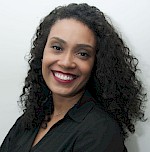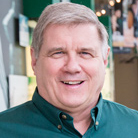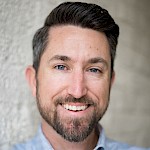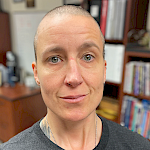Webinar
Virtual Conference: Generational Considerations within Sport and Performance Psychology
Webinar Archive
If you already purchased this webinar, you can access the archive.
Otherwise, you can register for access to the archive.
Keep your confirmation email(s) as CEU documentation for AASP webinars and virtual conferences.
Description
Session Length
Three hours
Overview
Sport psychology professionals have the opportunity to support many generations within the context of their applied work and research. Our 2024 Virtual Conference will focus on key generational factors that impact our profession, so that we may better understand and reflect on this component of identity - of the people we support, and of our own. Speakers will discuss generational differences and biases; ageism and ways to address ageist stereotypes and systems; personal experiences and reflections; and strategies to support various generations in our work within youth sport, business, and tactical settings.
Presentations & Speakers
Understanding Generational Bias and Ageist Systems
Amanda Perkins-Ball, PhD, Rice University
The aim of this session is to explore the differences between generations, examining the seminal experiences that have influenced them and the sociocultural factors that have shaped them. After being introduced to the multidimensional nature of ageism (WHO, 2021), attendees will be encouraged to think critically about the impact of ageist biases and systems on one's work (Makepeace & Young, 2021), and move beyond simplistic generational categorizations. This session is designed to provide students, professionals, researchers, and CMPCs with a comprehensive understanding of the generations they may encounter in their work, as well as to prompt them to reflect on how their own generational identity might affect their understanding of themselves, their roles, and their work. Finally, we will discuss strategies for addressing ageist stereotypes and systems in our work, drawing on insights from Burnes et al. (2019) and Weir (2023).
Generation Considerations in Youth Sport
Dan Gould, PhD, Institute for the Study of Youth Sports and Michigan State University
The world is changing at a more rapid rate than any time in history. These changes are having a major influence on young people in general (Twenge, 2023) and young athletes in particular (Gould et al., 2019; Gould & Mignano, in preparation). The research our team has conducted on coaches and athletes’ perceptions of the characteristics of Gen Z (athletes born between 1996-2012) will be summarized with a particular emphasis on strategies that have been identified for coaching athletes of this generation.
Consulting Across Five Generations in One Business
Eric Bean, PhD, CMPC, PCC, HigherEchelon, Inc.
The workforce currently spans five generations from Traditionalists to Gen Z. The varied life experiences, soft skills, and perspectives across generations (Beier et al., 2022; Gomez et al., 2024; Mahmoud et al., 2021) challenges leaders to be flexible and adaptable. The workforce makeup and recent conditions (e.g., covid-19, ‘the great resignation’) that have influenced significant shifts in the way we work put even more stress on leaders to motivate, guide collaboration, and develop high performing teams. In this discussion, I will explore the role executives and leaders play in forging a generationally inclusive workforce, discuss strategies for consultants to work across generations in a business environment, and highlight why some people question whether we need to manage generations differently at all (Parry & Urwin, 2021; Rudolph et al., 2021).
Reflexive Practice, Rapport, & Generational Considerations in Special Forces
Shannon Baird, PhD, CMPC, Government Contractor, US Special Forces
In this discussion, I will explore the dynamics of age, generational differences, and applied work in a military special operations setting. As I grow older, age is becoming more germane in understanding both my own positionality and the social dynamics of the military context. Using reflexive practice, I interrogate the constructs of age and generational differences to better understand my situated self and enhance my effectiveness. I will share lived experiences of how, in some instances, my age affords me privilege and respect, and, in other instances, generational differences make it difficult to connect. Additionally, I will unpack the unique hierarchical rank structure of the military as this structure poses interesting age and generational considerations that can impact unit performance. In sharing these experiences, I hope to highlight strategies for negotiating and leveraging “age” to enhance applied practice.
Learning Objectives
Attendees will:
- Understand the difference between age and generation; learn about ageism
- Be able to differentiate between generational stereotypes weaponized to other individuals and generational differences driven by the social and cultural context within which an individual was born
- Reflect upon their beliefs and assumptions about members of different generations
- Understand the characteristic strengths and limitations of Gen Z athletes; gain specific strategies for coaching and consulting with Gen Z athletes
- Examine ways leaders can adapt to meet generational needs; explore sources of resistance to generational considerations; and learn strategies to guide generational inclusivity and team cohesion in a business environment
- Recognize opportunities and pitfalls to applying generational differences; learn how to use knowledge of generational trends to build rapport, understand the applied context, and reflect on one’s positionality within the applied context
CE Credit
This program has been approved for 3.0 CEUs in the area of Diversity to partially meet the continuing education recertification requirement for Certified Mental Performance Consultants® (CMPCs).
Program Format
You can attend an AASP webinar from your home or office. All you need is an internet connection. You can see the presentation slides on your computer or mobile device, and listen to the audio through your device, or call in with a phone. Registrants will be provided with login information the day prior to the session. The webinar will also be archived for those who wish to watch it at a later date.
References
- Baird, S. M. (2015). BE, KNOW, DO model of consulting: An exploration of how experiences with soldiers affected me and how my notions of self affected soldiers’ experiences. In R. J. Schinke & K. R. McGannon (Eds.), The psychology of sub-culture in sport and physical activity (pp. 135-152). Routledge.
- Beier, M. E., Kanfer, R., Kooij, D. T. A. M., & Truxillo, D. M. (2022). What’s age got to do with it? A primer and review of the workplace aging literature. Personnel Psychology, 75, 779–804.
- Burnes, D., Sheppard, C., Henderson Jr, C. R., Wassel, M., Cope, R., Barber, C., & Pillemer, K. (2019). Interventions to reduce ageism against older adults: A systematic review and meta-analysis. American Journal of Public Health, 109(8), e1-e9.
- Cropley, B., Hanton, S., Miles, A., & Niven, A. (2010). Exploring the relationship between effective and reflective practice in applied sport psychology. The Sport Psychologist, 24(4), 521-541.
- Gomez, K., Mawhinney, T., & Betts, K. (2024). “Welcome to Generation Z.” Deloitte.
- https://www2.deloitte.com/us/en/pages/consumer-business/articles/understanding-generation-z-in-the-workplace.html
- Gould, D., & Mignano, M. (in preparation). Coaching Generation Z athletes: College coach and
- athlete perspectives.
- Gould, D., Nalepa, J., & Mignano, M. (2019). Coaching Generation Z athletes. Journal of
- Applied Sport Psychology, 32(1), 1-4-120.
- Green Beret Foundation. (2024, January 29). The most complex missions. The best trained soldiers. Who we serve. https://greenberetfoundation.org/who-we-serve/
- Knowles, Z., Gilbourne, D., & Niven, A. (2011). Critical reflections on doing reflective practice and writing reflective texts. In D. Gilbourne & M. B. Anderson (Eds.), Critical essays in applied sport psychology (pp. 59-72). Human Kinetics.
- Knowles, Z., Katz J., & Gilbourne, D. (2012). Reflective practice within elite consultancy: Diary extracts and further discussion on a personal elusive and process. The Sport Psychologist, 26(3), 454-469.
- Kuyken, K., & Costanza, D. (2024). Because work is changing: A new paradigm for intergenerational workplace knowledge sharing. Journal of Intergenerational Relationships, 1-17.
- Mahmoud, A. B., Fuxman, L., Mohr, I., Reisel, W. D., & Grigoriou, N. (2021). “We aren't your reincarnation!” workplace motivation across X, Y and Z generations. International Journal of Manpower, 42(1), 193-209.
- Makepeace, T., & Young, B. (2021). Mental performance consultants’ perspectives on content and delivery of sport psychology services to masters athletes. Journal of Aging and Physical Activity, 30(4), 1-12.
- North, M., & Fiske, S. (2012). An inconvenienced youth? Ageism and its potential intergenerational roots. Psychological Bulletin, 138(5), 982-987.
- Parry, E., & Urwin, P. (2021). Generational categories: A broken basis for human resource management research and practice. Human Resource Management Journal, 31(4), 857-869.
- Rudolph, C. W., Rauvola, R. S., Costanza, D. P., & Zacher, H. (2021). Generations and generational differences: Debunking myths in organizational science and practice and paving new paths forward. Journal of Business and Psychology, 36, 945-967.
- Schinke, R. J., McGannon, K. R., Parham, W. D., & Lane, A. M. (2012). Toward cultural praxis and cultural sensitivity: Strategies for self-reflexive sport psychology practice. Quest, 64(1), 34-46.
- Smith, B., & Sparkes, A. C. (2009a). Narrative inquiry in sport and exercise psychology: What can it mean and why might we do it? Psychology of Sport and Exercise, 10(1), 1-11. http://dx.doi.org/10.1016/j.psychsport.2008.01.004
- Smith, B., & Sparkes, A. C. (2009b). Narrative analysis and sport and exercise psychology: Understanding lives in diverse ways. Psychology of Sport and Exercise, 10(2), 279-288. http://dx.doi.org/10.1016/j.psychsport.2008.07.012
- Twenge, J. M. (2023). Generations: The real differences between GenZ, Millennials, GenX, Boomers, and Silents and what they mean for America’s future. Atria Books.
- Vogiatzaki, E., & Leventeri, E. S. (2024). A systematic literature review: Work engagement across generations.
- Weir, K. (2023, March 1). Ageism is one of the last socially acceptable prejudices. Psychologists are working to change that. Monitor on Psychology, 54(2). https://www.apa.org/monitor/2023/03/cover-new-concept-of-aging
- World Health Organization (2021, March 18). Global report on ageism.
- https://www.who.int/publications/i/item/9789240016866
About the Speakers
 Amanda M. Perkins-Ball, PhD is an Assistant Teaching Professor of Kinesiology at Rice University in Houston, TX. Her professional and research interests include promoting physical activity among underserved populations, understanding the experiences of individuals with marginalized identities in sport and physical activity spaces, and diversity, equity, and inclusion in sport psychology pedagogy and practice. Dr. Perkins-Ball has authored over a dozen manuscripts, numerous book chapters, and over 40 state, national, and international presentations. She has delivered several keynotes and invited lectures, primarily focusing on equity and disparities in sports, health, and education. She has received multiple awards for her teaching and mentoring of students. Dr. Perkins-Ball is the Membership Services Division Head for the Association for Applied Sport Psychology (AASP). Before being elected to the E-Board in 2023, she was the chair of the Diversity Committee. She earned her Ph.D. in Kinesiology with an emphasis in Exercise and Sport Psychology from Temple University, an M.S.Ed in Sport Studies at Southern Illinois University Carbondale, and a B.S. in Health and Human Performance at the University of Louisville.
Amanda M. Perkins-Ball, PhD is an Assistant Teaching Professor of Kinesiology at Rice University in Houston, TX. Her professional and research interests include promoting physical activity among underserved populations, understanding the experiences of individuals with marginalized identities in sport and physical activity spaces, and diversity, equity, and inclusion in sport psychology pedagogy and practice. Dr. Perkins-Ball has authored over a dozen manuscripts, numerous book chapters, and over 40 state, national, and international presentations. She has delivered several keynotes and invited lectures, primarily focusing on equity and disparities in sports, health, and education. She has received multiple awards for her teaching and mentoring of students. Dr. Perkins-Ball is the Membership Services Division Head for the Association for Applied Sport Psychology (AASP). Before being elected to the E-Board in 2023, she was the chair of the Diversity Committee. She earned her Ph.D. in Kinesiology with an emphasis in Exercise and Sport Psychology from Temple University, an M.S.Ed in Sport Studies at Southern Illinois University Carbondale, and a B.S. in Health and Human Performance at the University of Louisville.
 Dan Gould, PhD is the Former Director of the Institute for the Study of Youth Sports and Professor Emeritus in the Department of Kinesiology at the Michigan State University. Dan’s current research focuses on how coaches teach life skills to young athletes, coaching Gen Z athletes and developing youth leaders through the sport captaincy experience. In addition to his research interests, Dan has dedicated much of his career to applied sport psychology efforts as a mental skills training consultant, coaching educator and author. He has written a number of books, including Foundations of Sport and Exercise Psychology (co-authored with Robert Weinberg), the most widely used text in the field and his most recent book, Reflections on a career in sport psychology.
Dan Gould, PhD is the Former Director of the Institute for the Study of Youth Sports and Professor Emeritus in the Department of Kinesiology at the Michigan State University. Dan’s current research focuses on how coaches teach life skills to young athletes, coaching Gen Z athletes and developing youth leaders through the sport captaincy experience. In addition to his research interests, Dan has dedicated much of his career to applied sport psychology efforts as a mental skills training consultant, coaching educator and author. He has written a number of books, including Foundations of Sport and Exercise Psychology (co-authored with Robert Weinberg), the most widely used text in the field and his most recent book, Reflections on a career in sport psychology.
 Eric Bean, PhD, CMPC, PCC is the Director of High Performance at HigherEchelon, an executive coach, leadership consultant, podcast host, and keynote speaker. Through both one-on-one and group trainings, Eric has worked with Army Special Forces, Navy SEALs, surgeons, business professionals, and athletes on the psychology of high performance, leadership, culture, and team dynamics. While working with the Army, Eric led a small team to create and implement the first mental training curriculum for surgeons and emergency physicians at Madigan Army Medical Center. Dr. Bean partners with organizations in both private and public sectors to design, develop, and implement customized solutions for enhancing leadership, aligning strategy and culture, and generating powerful team performance. Dr. Bean has taught a graduate level Leadership Theory and Application course at Boston College, has coached Fortune 100 leaders, and is the host of the podcast Coaching Through Stories: Lessons in Leadership and High Performance. Dr. Bean is a Certified Mental Performance Consultant (CMPC), a Professional Certified Coach (PCC) through ICF, and has served on the Executive Board within the Association for Applied Sport Psychology. Eric received a Bachelor of Arts in Psychology from the University of Southern California, a Master of Science in Sport Psychology from Cal State Fullerton, and a Ph.D. from Michigan State University in Sport and Exercise Psychology. Dr. Bean is a published, peer-reviewed author and has gained insights from both elite performers on what it takes to be their best when it matters the most.
Eric Bean, PhD, CMPC, PCC is the Director of High Performance at HigherEchelon, an executive coach, leadership consultant, podcast host, and keynote speaker. Through both one-on-one and group trainings, Eric has worked with Army Special Forces, Navy SEALs, surgeons, business professionals, and athletes on the psychology of high performance, leadership, culture, and team dynamics. While working with the Army, Eric led a small team to create and implement the first mental training curriculum for surgeons and emergency physicians at Madigan Army Medical Center. Dr. Bean partners with organizations in both private and public sectors to design, develop, and implement customized solutions for enhancing leadership, aligning strategy and culture, and generating powerful team performance. Dr. Bean has taught a graduate level Leadership Theory and Application course at Boston College, has coached Fortune 100 leaders, and is the host of the podcast Coaching Through Stories: Lessons in Leadership and High Performance. Dr. Bean is a Certified Mental Performance Consultant (CMPC), a Professional Certified Coach (PCC) through ICF, and has served on the Executive Board within the Association for Applied Sport Psychology. Eric received a Bachelor of Arts in Psychology from the University of Southern California, a Master of Science in Sport Psychology from Cal State Fullerton, and a Ph.D. from Michigan State University in Sport and Exercise Psychology. Dr. Bean is a published, peer-reviewed author and has gained insights from both elite performers on what it takes to be their best when it matters the most.
 Shannon M. Baird, PhD, CMPC is the Cognitive Enchantment Practitioner (CEP) for 1st Special Forces Group (1SFG). As the CEP, Dr. Baird designs and delivers tailored training to inspire internalization and sustained utilization of mental skills across multiple domains while simultaneously influencing the direction of Special Operations’ Cognitive Domain. Dr. Baird earned her Ph.D. at the University of Iowa in Sport Psychology. She completed her M.Ed. in Developmental Kinesiology and B.S. in Kinesiology from Bowling Green State University in Ohio where she also competed as a DI athlete. Her professional career began at Iowa as a lecturer and applied practitioner where she worked with various sport teams and individual performers. Subsequently, she worked as a contractor in support of a Department of the Army program. In that role, she worked at both the strategic and at the tactical levels. Dr. Baird has over 20 years of applied experiences, more than a decade of which has focused entirely on the Military. In 2021, Dr. Baird was elected to the Association for Applied Sport Psychology (AASP) E-Board as the Public Relations and Outreach Division Chair. In 2023, she was recognized as a long-standing contributor to the advancement of applied sport psychology by being inducted as an AASP Fellow. In addition to her applied experiences and AASP service, Dr. Baird is an invited lecturer, keynote presenter, and published author. Dr. Baird currently lives in Washington State with her wife and two dogs where she actively pursues her dream of running the Big Foot 200.
Shannon M. Baird, PhD, CMPC is the Cognitive Enchantment Practitioner (CEP) for 1st Special Forces Group (1SFG). As the CEP, Dr. Baird designs and delivers tailored training to inspire internalization and sustained utilization of mental skills across multiple domains while simultaneously influencing the direction of Special Operations’ Cognitive Domain. Dr. Baird earned her Ph.D. at the University of Iowa in Sport Psychology. She completed her M.Ed. in Developmental Kinesiology and B.S. in Kinesiology from Bowling Green State University in Ohio where she also competed as a DI athlete. Her professional career began at Iowa as a lecturer and applied practitioner where she worked with various sport teams and individual performers. Subsequently, she worked as a contractor in support of a Department of the Army program. In that role, she worked at both the strategic and at the tactical levels. Dr. Baird has over 20 years of applied experiences, more than a decade of which has focused entirely on the Military. In 2021, Dr. Baird was elected to the Association for Applied Sport Psychology (AASP) E-Board as the Public Relations and Outreach Division Chair. In 2023, she was recognized as a long-standing contributor to the advancement of applied sport psychology by being inducted as an AASP Fellow. In addition to her applied experiences and AASP service, Dr. Baird is an invited lecturer, keynote presenter, and published author. Dr. Baird currently lives in Washington State with her wife and two dogs where she actively pursues her dream of running the Big Foot 200.
Registration
Students – $49.00
Members – $75.00
Non-members – $99.00
Register to access the archive




